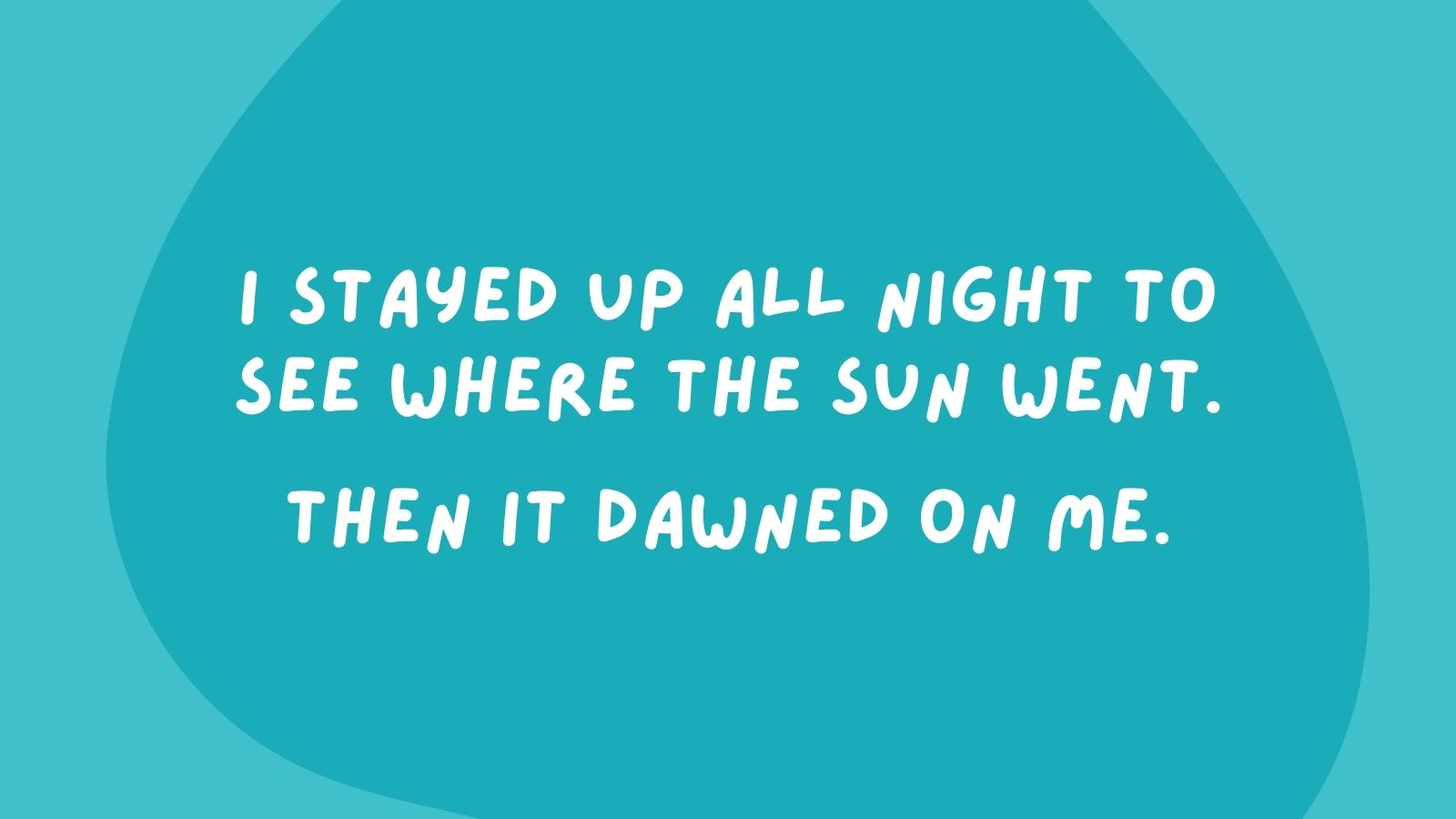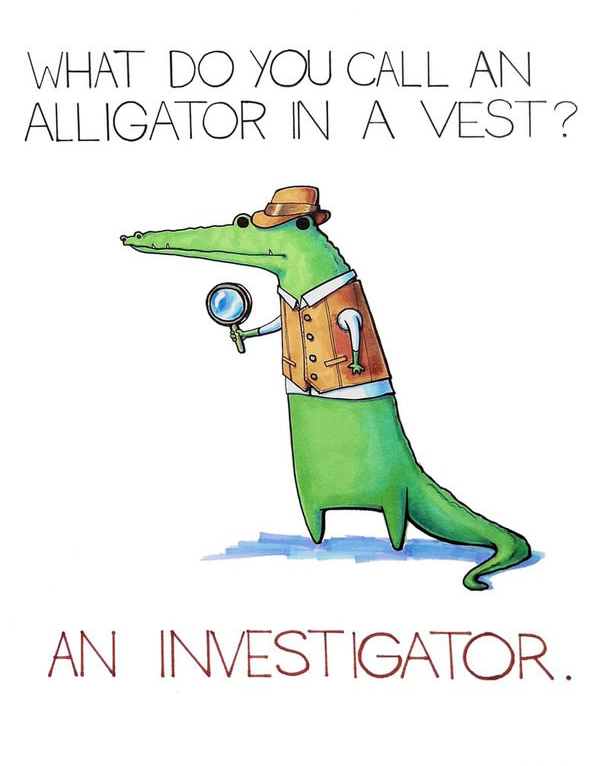English puns are a play on words that often have a humorous or witty twist. They are wordplay gems!
Enjoy the clever humor and linguistic creativity in these puns from various sources. Whether it’s food, animals, love, or any other topic, puns are sure to bring a smile to your face. Dive into the world of puns and let the laughter flow with these funny and entertaining puns that will tickle your funny bone.
Get ready for a pun-tastic experience filled with clever wordplay and punny jokes that will brighten your day.

Credit: www.weareteachers.com
The Art Of Wordplay
Delve into the captivating world of English Puns – where words playfully dance to create clever and amusing expressions. Engage in the art of wordplay, where humor meets creativity in witty linguistic twists that will leave you chuckling. Explore the endless possibilities of puns and unlock the joy of language play.
Puns: More Than Just Humor
English puns are a delightful form of wordplay that goes beyond mere laughter. They showcase the beauty of language and creativity.
The Linguistic Mechanics Behind Puns
Puns rely on the clever use of homophones, double meanings, and word relationships to create humor and evoke thought.

Credit: ellii.com
A Glimpse Into Pun History
Let’s dive into the fascinating world of puns and explore their intriguing history. From ancient scripts to modern quips, puns have been a clever linguistic device that continues to captivate and amuse audiences across the ages.
From Ancient Scripts To Modern Quips
Puns can be traced back to ancient civilizations, where wordplay was used to convey multiple meanings and create humor. From hieroglyphs to early writing systems, puns have left their mark on various ancient texts, showcasing the timeless appeal of clever linguistic wit.
Puns In Literature And Speeches
In literature, puns have been a staple of comedic and thought-provoking writing, adding depth and amusement to renowned works. From Shakespearean plays to modern novels, puns have woven their way into the fabric of literary expression, delighting readers and challenging their linguistic prowess.
Similarly, in speeches, puns have been employed by orators to engage audiences and infuse levity into serious topics, demonstrating the versatile nature of wordplay in communication.
Types Of Puns
When it comes to English puns, there are various types that add humor and wit to language. Understanding the different types of puns can help you appreciate the cleverness and creativity behind wordplay. Let’s explore the main categories of puns:
Homophonic And Homographic Puns
Homophonic puns rely on words that sound the same but have different meanings, creating a humorous effect. On the other hand, homographic puns involve words that are spelled the same but have different meanings and origins. Both types play with the ambiguity of language, resulting in clever and entertaining wordplay.
Compound Puns And Beyond
Compound puns are formed by combining two or more words with multiple meanings to create a humorous effect. These puns often require a play on words and creative interpretation. Beyond these categories, there are numerous other types of puns, including visual puns, phonetic puns, and more, each contributing to the rich tapestry of pun-based humor.
Puns In Pop Culture
Dive into the world of English Puns in Pop Culture, where clever wordplay takes the spotlight. From TV shows to music lyrics, these puns add a playful twist to everyday language, keeping audiences entertained and engaged. Get ready to chuckle at the witty humor woven into popular culture references.
Puns On The Big Screen
Puns have been a staple in pop culture for decades, and the big screen is no exception. From classic comedies like Airplane! and The Naked Gun to modern-day hits like Deadpool and Guardians of the Galaxy, puns are used to add a lighthearted and humorous touch to movies.
One example is in the film Austin Powers: International Man of Mystery. In one scene, the main character Austin Powers is in a car with his female companion, Vanessa Kensington. Austin asks Vanessa, “Do you have any idea what we’re up against?” To which Vanessa responds, “Pancakes.” Austin, confused, asks, “Did you say pancakes?” Vanessa clarifies, “Yes, pancakes. The problem is that there are too many of them. Sir, we have a problem.”
This pun relies on the double meaning of the word “stacked,” which can refer to both a stack of pancakes and a difficult situation. It’s a clever way to add humor to the film while also advancing the plot.
Puns In Social Media And Memes
In today’s digital age, social media and memes have become a popular platform for puns. Twitter, Instagram, and Facebook are all home to countless accounts dedicated solely to puns.
One popular meme that has taken the internet by storm is the “distracted boyfriend” meme. The meme features a stock photo of a man looking back at an attractive woman while his girlfriend looks on in disapproval. The meme has been used to make a variety of puns, such as “When you’re in a committed relationship, but your eyes aren’t” or “When you’re trying to stay loyal, but bae comes through with the dad jokes.”
Another example is the popular Twitter account @PunHubOnline, which posts daily puns on a variety of topics, from food to sports to pop culture. One recent tweet reads, “Why did the tomato turn red? Because it saw the salad dressing!”
Puns have become a way for people to connect and share humor online, and social media and memes have only increased their popularity.
The Science Of Laughter
Discover the science of laughter through the clever world of English puns. These wordplay gems tickle the funny bone and showcase the power of language to create humor. Enjoy a dose of wit and whimsy with these linguistic delights.
Why Puns Trigger Our Funny Bone
Puns have the ability to make us laugh and smile, even when we are having a bad day. But have you ever wondered why puns are so effective at eliciting a positive response from us? The answer lies in the science of laughter.
Laughter is a complex physiological response that involves the activation of multiple regions in the brain. When we hear a pun, our brain has to work harder to process the information and make sense of the wordplay. This additional cognitive effort triggers the release of endorphins in the brain, which are responsible for the feelings of pleasure and euphoria that we experience when we laugh.
Psychology Of Pun Appreciation
The psychology of pun appreciation is a fascinating area of study that seeks to understand why people enjoy puns so much. One theory suggests that puns are an example of incongruity resolution, which occurs when our brain is presented with two conflicting pieces of information, such as a word with multiple meanings.
In order to make sense of this incongruity, our brain has to work harder to reconcile the conflicting pieces of information. This additional cognitive effort is what makes puns so enjoyable and satisfying for us. Additionally, puns are often seen as a sign of intelligence and wit, which can make them even more appealing to certain individuals.
In conclusion, the science of laughter and the psychology of pun appreciation are fascinating areas of study that help us to better understand the complex interplay between language, humor, and the human brain. So the next time you hear a pun, take a moment to appreciate the clever wordplay and the joy and laughter it brings.
Crafting The Perfect Pun
English puns are a delightful form of wordplay that can bring humor and wit to any conversation or piece of writing. Crafting the perfect pun involves a delicate balance of creativity, linguistic skill, and keen observation of everyday situations. Whether you’re aiming to entertain your friends or engage your audience, mastering the art of pun-making can elevate your communication skills to a whole new level.
Elements Of A Successful Pun
Creating a successful pun involves several key elements that contribute to its effectiveness. These elements include:
- Wordplay: Utilizing words with multiple meanings, similar sounds, or different spellings to create a clever twist.
- Relevance: Ensuring that the pun is contextually relevant to the topic or situation at hand, making it more relatable and impactful.
- Timing: Knowing when and where to deploy the pun for maximum comedic effect, often catching the audience off guard.
Avoiding Puns That Fall Flat
While crafting puns, it’s crucial to be mindful of potential pitfalls that can lead to a lackluster response. Here are some common mistakes to avoid:
- Forced Puns: Trying too hard to force a pun into a conversation can make it feel contrived and unnatural.
- Overused Phrases: Using clichéd puns that have been heard countless times can diminish their impact and elicit groans instead of laughter.
- Insensitivity: Steering clear of puns that may be offensive or hurtful to certain individuals or groups, as humor should never come at the expense of others’ feelings.
Educational Puns
Get ready to laugh with educational puns, especially English puns that will tickle your funny bone. These clever wordplays are not just for teachers but also for students looking to add some humor to their language learning journey.
Puns In The Classroom
Puns are a fantastic way to add a touch of humor and creativity to the classroom. They can be used to engage students and make learning more enjoyable. Incorporating puns into the classroom environment can foster a positive and lighthearted atmosphere, making the learning process more enjoyable for students of all ages.
Learning English Through Puns
Learning English through puns can be an entertaining and effective approach. Puns encourage students to think critically about the nuances of the English language, enhancing their vocabulary and comprehension skills. By exploring puns, students can develop a deeper appreciation for the intricacies of the English language.
Pun Competitions And Festivals
Explore the world of English puns at lively Pun Competitions and Festivals, where wit and wordplay take center stage. These events showcase hilarious word twists and creative humor, offering a fun and engaging experience for language enthusiasts and comedy lovers alike.
Celebrating Wordplay Worldwide
Join the global celebration of wit and humor at various pun competitions and festivals. These events bring together pun enthusiasts from all corners of the world to showcase their linguistic creativity.
Famous Pun Contests And Their Winners
Explore renowned pun contests that have crowned wordsmiths with titles like “Pun Master” and “Punniest Person.” These competitions highlight the art of wordplay and honor those who excel in the punning craft.
The Dark Side Of Puns
Puns, while often light-hearted and humorous, can sometimes lead to unintended consequences. In certain situations, a pun that misses the mark can result in confusion or even offense. Let’s explore the darker side of puns.
When Puns Go Wrong
At times, a pun can be misinterpreted, causing confusion or awkwardness. A poorly executed pun may fall flat, leaving the audience puzzled or unamused. In more serious cases, a pun that is insensitive or inappropriate can offend individuals or groups.
The Pun-detractors’ Point Of View
Some individuals, known as pun-detractors, hold a negative view of puns. They argue that puns are overused, lacking in originality, and often disrupt the flow of conversation. Critics claim that excessive punning can be tiresome and irritating to those who prefer straightforward communication.

Credit: kseacademy.com
Puns Around The World
English puns are not only a source of amusement but also a reflection of cultural nuances and linguistic creativity. Puns, known for their clever wordplay and humor, vary across different cultures and languages, making them a fascinating subject to explore.
Cultural Variations In Puns
Each culture has its own unique way of creating and interpreting puns. In some cultures, wordplay may revolve around specific idioms or historical references, adding layers of meaning and wit to the puns. Furthermore, the use of homophones and double entendre can vary widely across cultures, influencing the style and impact of puns in different linguistic contexts.
International Pun Masters
Across the globe, there are individuals who have mastered the art of puns in their native languages and beyond. These international pun masters demonstrate the versatility of wordplay and its ability to transcend linguistic barriers. Their creations showcase the rich diversity of puns and the universal appeal of clever humor.
Frequently Asked Questions
What Are English Puns?
English puns are clever word plays that create humor through double meanings or similar-sounding words, adding a fun twist to language.
How Can English Puns Be Used?
English puns can be used in conversations, writing, social media, or presentations to entertain, engage, and add a light-hearted touch.
Why Are English Puns Popular?
English puns are popular because they offer a witty and creative way to play with language, making people laugh and think at the same time.
Where Can I Find English Pun Examples?
You can find English pun examples in jokes, pun books, online pun websites, and through wordplay activities that challenge your creativity.
Conclusion
In the world of language and humor, English puns are a delightful way to add wit and humor to conversations. They not only entertain but also showcase creativity in wordplay. Whether for kids, adults, or teaching aids, puns bring laughter and joy to all.
Embrace the puns and keep the laughter rolling!


Comments